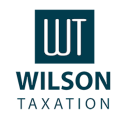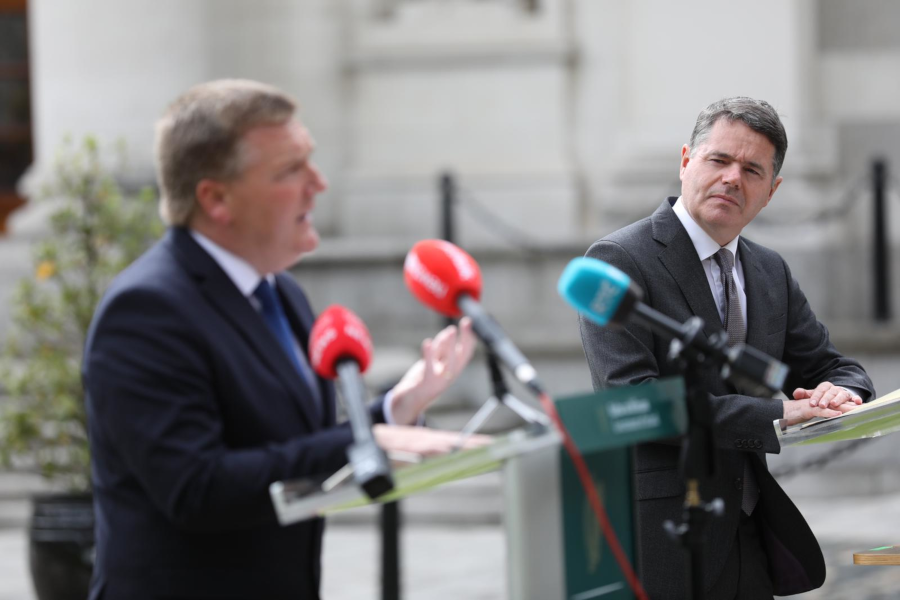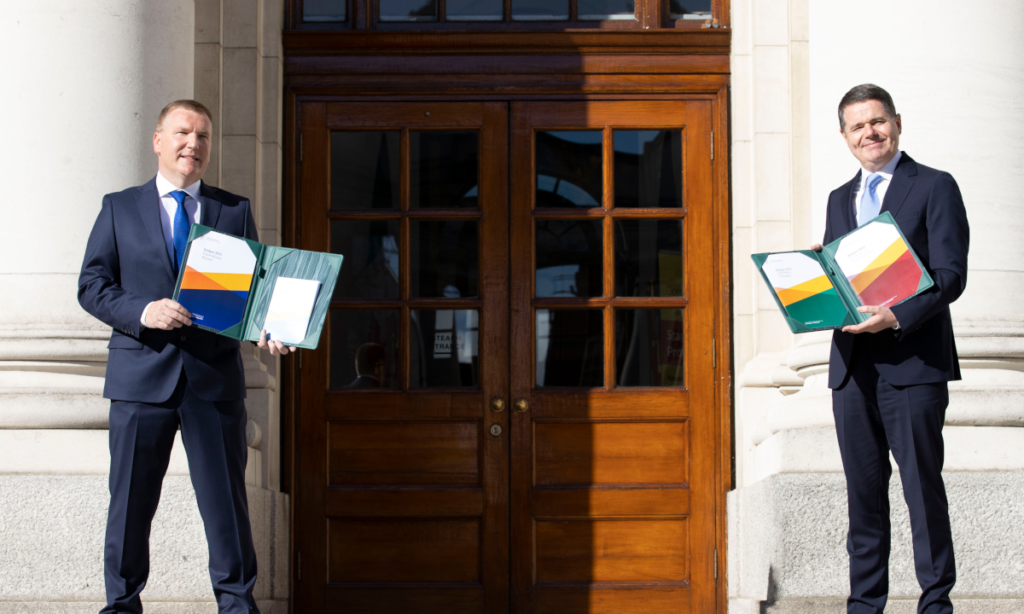A summary of some of the the taxation issues contained in Ireland’s Budget 2021 which was announced on 13 October 2020.
USC and income tax bands
As widely reported in the run up to Budget 2021, there has been no changes to the income tax rates and bands. The entry point to the 40% income tax rate remains at €35,300 for single individuals and €44,300 for married couples (with one earner).
In his Budget speech, Minister Donohoe confirmed that the ceiling of the 2% USC rate will be increased from €20,484 to €20,687 to ensure it remains the highest rate of USC paid by full-time minimum wage workers, when the National Minimum Wage increases on 1 January 2021.
It was also announced that the reduced rate of 2% USC that currently applies to medical card holders aged under 70, whose aggregate income does not exceed €60,000 will be extended for one year, to the end of 2021.
This means that the marginal rates of tax will remain at 48.5% for those earning between €35,301 and €70,044, 52% for employees earning over €70,044 and 55% for the self-employed earning over €100,000.
Self-employed
The Earned Income Credit for the self-employed will increase by €150 to €1,650 from the tax year 2020 onwards, to bring the credit to the same level as the PAYE Tax Credit.
Carers
The Dependent Relative Credit will increase from €70 to €245 for 2021.
Sea-going Naval Personnel
The Sea-going Naval Personal Tax Credit has been extended to 31 December 2021 and will be increased by €230 to €1,500 for 2021.
Employer’s PRSI
The weekly income threshold for the 11.05% rate of employer’s PRSI will be increased from €395 to €398 from 1 January 2021. This will ensure that the 8.8% rate of employer’s PRSI applies in respect of workers on the minimum wage, once it is increased on 1 January 2021.
Remote Working
In his Budget speech, the Minister referred to an inter-departmental group that has been established to develop a strategy for remote working and remote service delivery. In the interim, the Minster reminded taxpayers of the current regime whereby employers can pay their employees €3.20 per day without a benefit-in kind charge arising or alternatively, employees can claim a tax deduction for utility expenses, such as, light and heat. In his speech, the Minster confirmed that such employees may include the cost of broadband for 2020, details of which will be set out in updated Revenue guidance. Claims for other vouched expenses can be made by employees provided they are incurred “wholly, exclusively and necessarily” in the performance of their duties of employment.
Employment Wage Subsidy Scheme (EWSS)
The Minister confirmed that there will be no “cliff edge” end to the EWSS, which is due to expire on 31 March 2021, and that a similar type of scheme will be needed until the end of 2021 to provide businesses with certainty. The Government will decide on the form of the scheme’s extension when economic conditions are clearer.
COVID-19 Pandemic Unemployment Payment (COVID–PUP)
There were no changes to the rates of payment of the COVID-PUP. However, self-employed workers will be able to earn up to €480 per month (gross) and retain their COVID-PUP entitlement. Minister for Public Expenditure and Reform, Michael McGrath, T.D. also announced that on an exceptional basis this year, the 100% “Christmas Bonus” will be paid to recipients of the COVID-PUP and equivalent recipients of Jobseeker’s Payments who have been on these payments for four months or more.
Corporation Tax (CT)
Film Tax Credit
The operation of the Regional Film Development Uplift at the 5% rate is extended to the end of 2021. The tapering of the Uplift rate will commence in 2022, reducing at first to 3%.
Accelerated Capital Allowances for Energy Efficient Equipment
This scheme for energy efficient equipment is extended for a further three years, until 31 December 2023.
Knowledge Development Box (KDB)
The KDB is extended to 1 January 2023 for qualifying companies.
Capital Allowances for Intangible Assets
For specified intangible assets, a balancing charge, or clawback of capital allowances made, does not currently arise where a balancing event occurs more than five years after the beginning of the accounting period of the company in which the asset was first provided.
With effect from 14 October 2020, balancing charges may now arise in respect of specified intangible assets acquired on or after 14 October 2020 regardless of when a balancing event occurs.
Capital Acquisitions Tax (CAT)
There are no changes.
Capital Gains Tax (CGT)
Treatment of Certain Foreign Currency Transactions
A transfer of foreign currency between bank accounts, denominated in the same foreign currency held by the same person, will not be subject to CGT. This will apply to disposals made on or after 14 October 2020.
Revised Entrepreneur Relief
This relief will be amended so that an individual who held at least 5% of the shares in a qualifying company, or group of companies, for a continuous period of any three years qualifies. All other qualifying criteria remain unchanged. This will come into effect from 1 January 2021.
Interest Chargeable on Deferred Exit Tax
The amount of tax subject to interest, when Exit Tax is paid by instalments, is being amended with effect from 14 October 2020.
Share Based Remuneration Reporting
The scope of the reporting requirements for employers concerning share incentive plans is broadened to include:
• awards given to directors and employees in the form of a cash equivalent of shares
• where a discount on shares is provided.
Mandatory electronic reporting is introduced for:
• convertible securities
• restricted shares
• forfeitable shares
• any other share-based awards subject to reporting under section 897B of the Taxes Consolidation Act 1997.

Stamp Duty
Farm Consolidation Relief
The Stamp Duty relief available for the consolidation of farm holdings is being extended for an additional two years to 31 December 2022. This aligns the end date for this relief with an equivalent CGT relief.
Consanguinity Relief
A reduced Stamp Duty rate of 1% applies to transfers of farmland between certain blood relatives. This relief is being extended for an additional three years to 31 December 2023.
Residential Development Refund Scheme
Two qualifying conditions are being changed for the Stamp Duty refund scheme for land that is developed for residential purposes:
• The time allowed to commence construction work is being extended by one year to 31 December 2022.
• After a local authority has approved the commencement of construction, the time allowed to complete the development is being extended from 24 months to 30 months.
Help to Buy (HTB) Incentive
The July Stimulus plan introduced a temporary enhanced HTB relief from the period 23 July 2020 to 31 December 2020. Increased Income Tax (IT) relief for the HTB scheme is available, to the lesser of:
• €30,000 (up from €20,000)
• 10% (up from 5%) of the purchase price of the new home or of the completion value of the property in the case of self-builds
• the amount of IT and DIRT paid over the four years prior to making the application.
This enhanced relief has been extended to 31 December 2021.
Value Added Tax (VAT)
VAT Rate
The supply of certain goods and services to which the rate of 13.5% currently applies will be liable to VAT at 9% from 1 November 2020 until 31 December 2021. This will mainly affect the supply of restaurant and catering services, guest and holiday accommodation, and various entertainment services such as admission to cinemas, theatres, museums, fairgrounds and amusement parks.
VAT at 9% will also apply to hairdressing and certain printed matter such as brochures, maps and programmes.
The 9% rate applying to magazines and newspapers and to the provision of sporting facilities will remain unaffected.
Flat-Rate Addition for Farmers
This flat rate is increased from 1 January 2021, from 5.4% to 5.6%.


